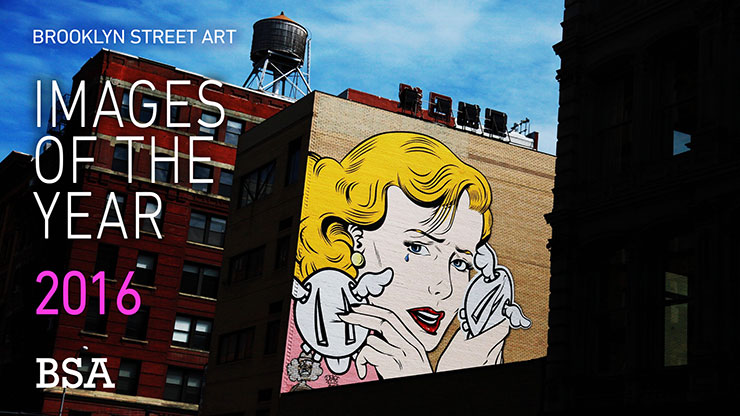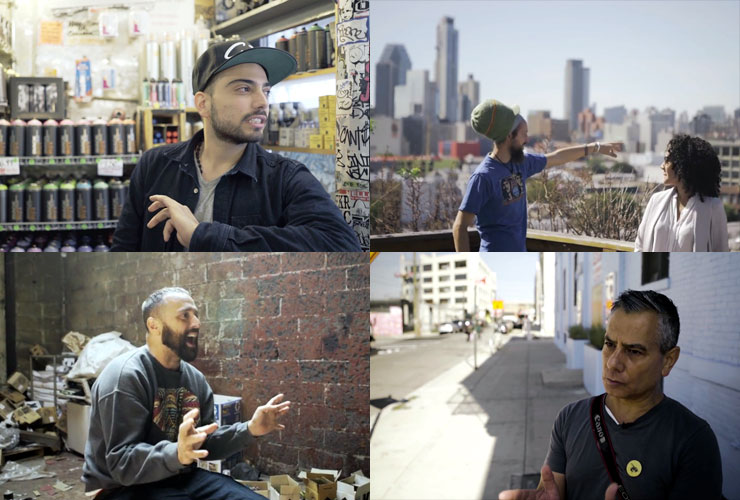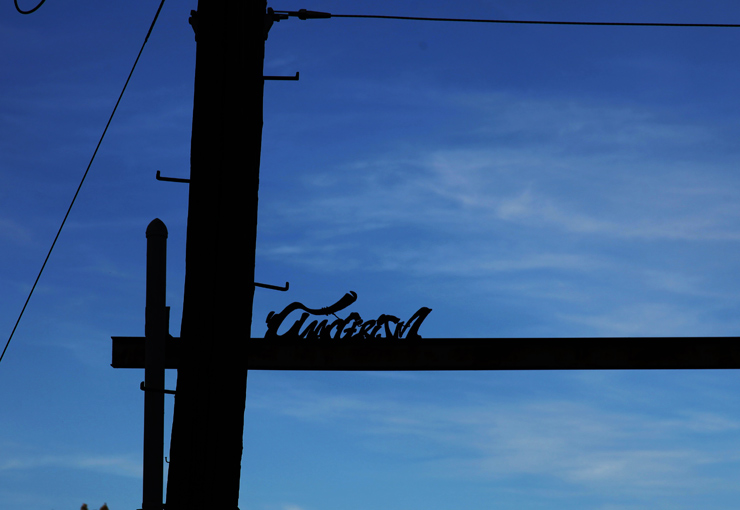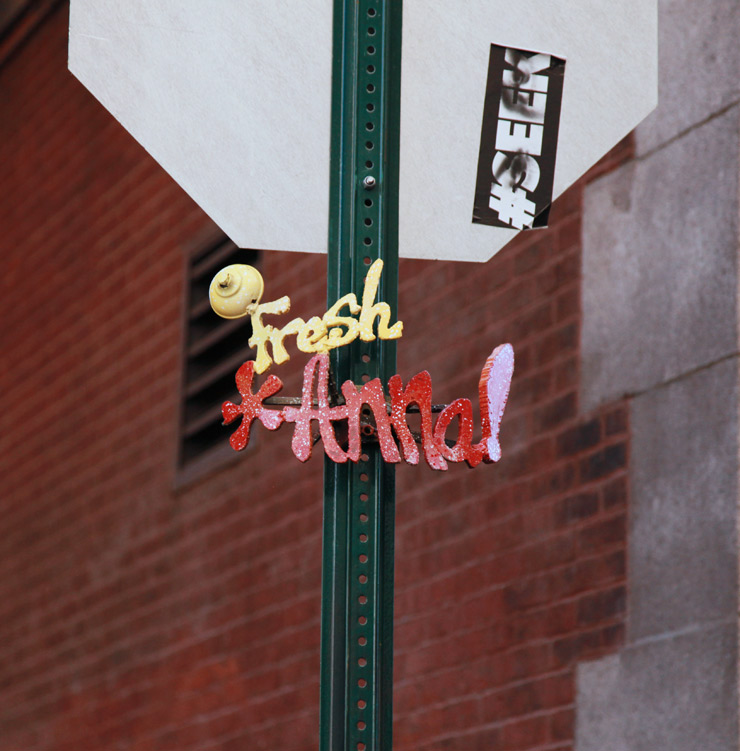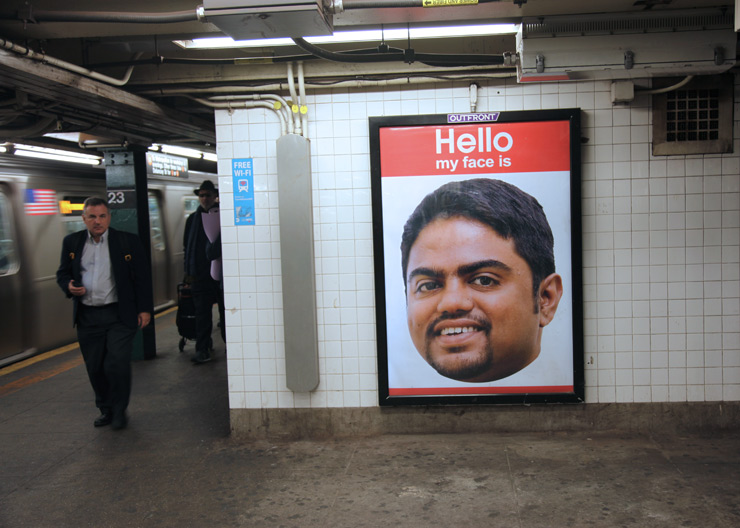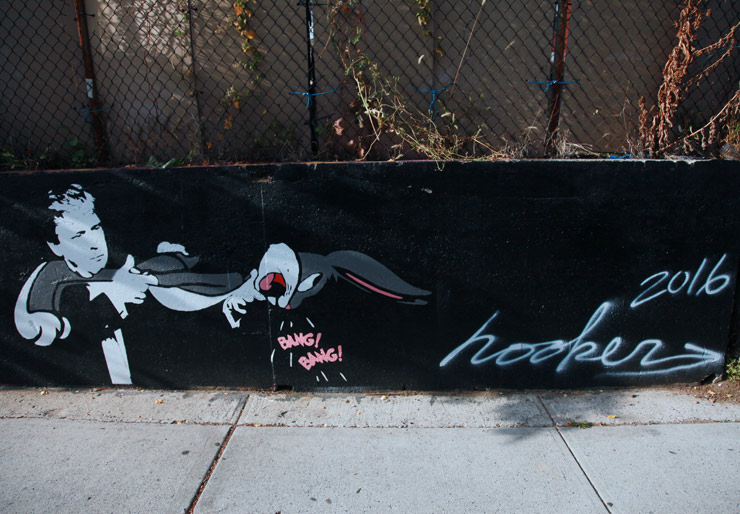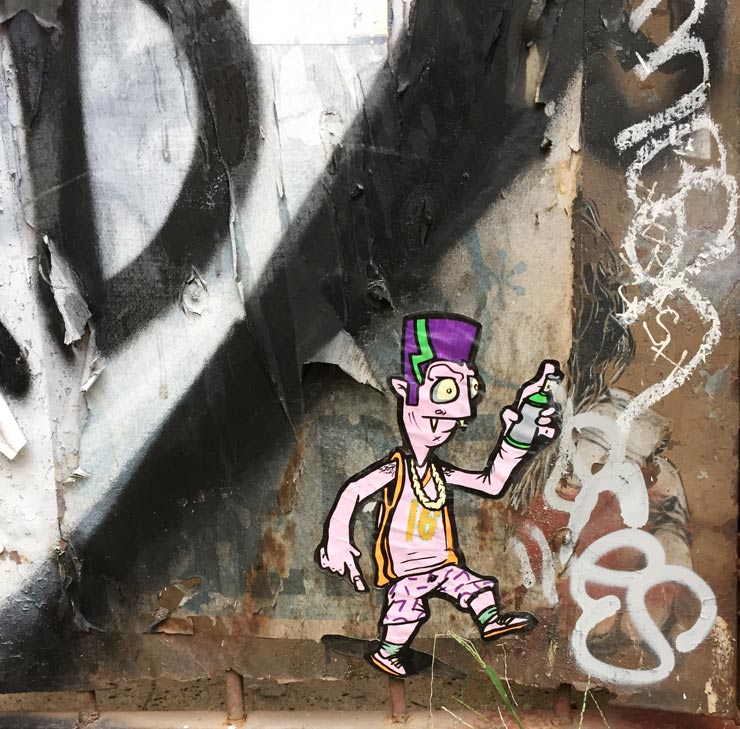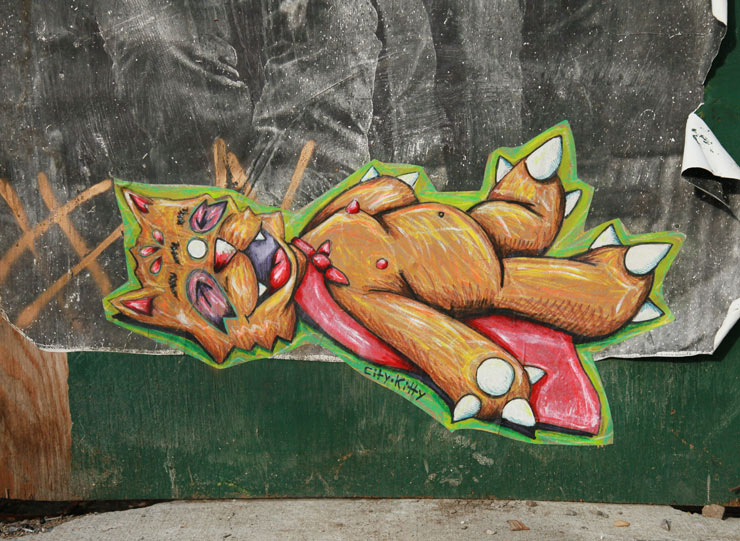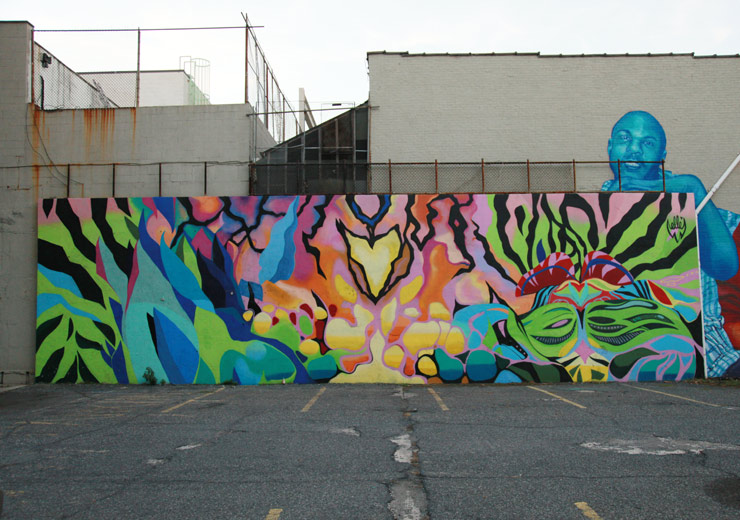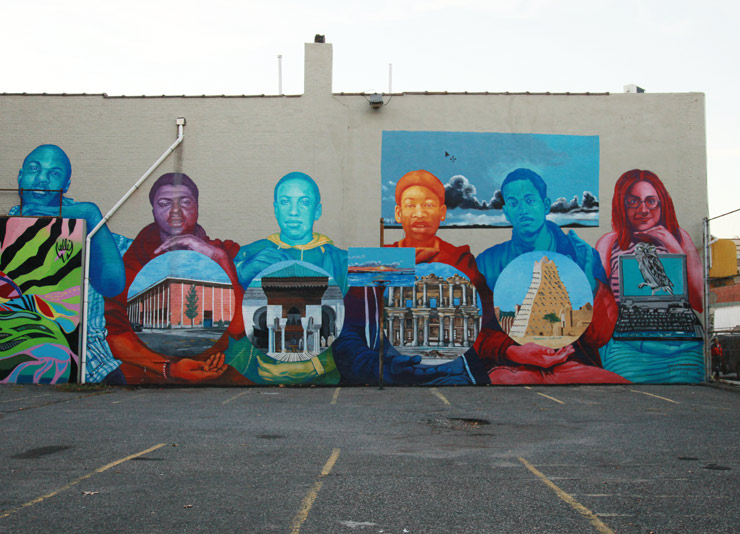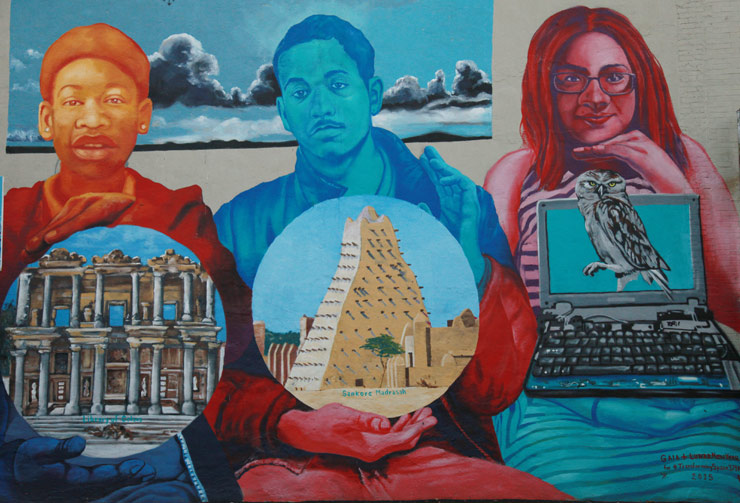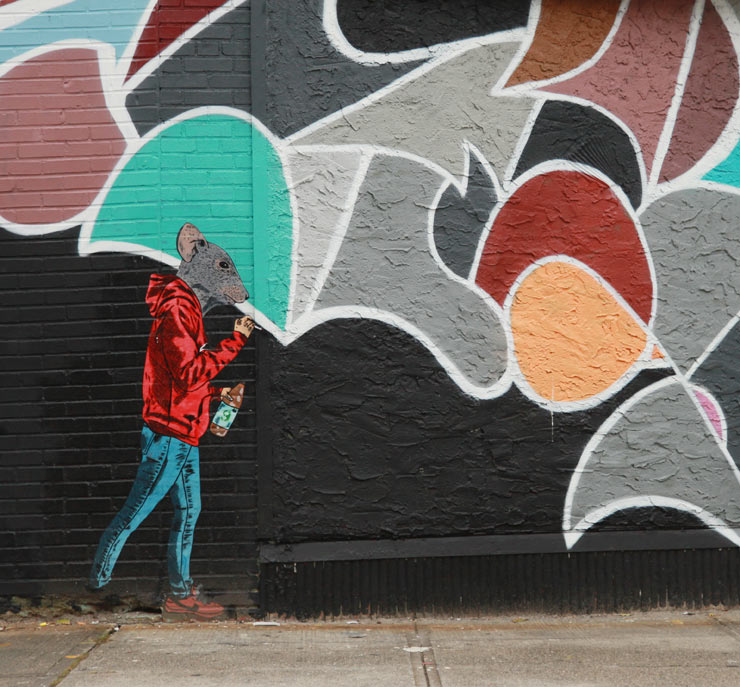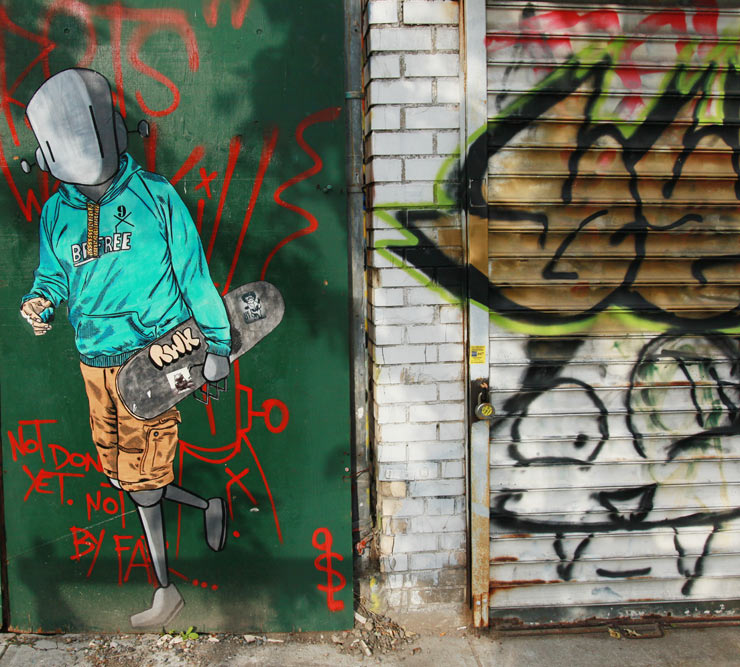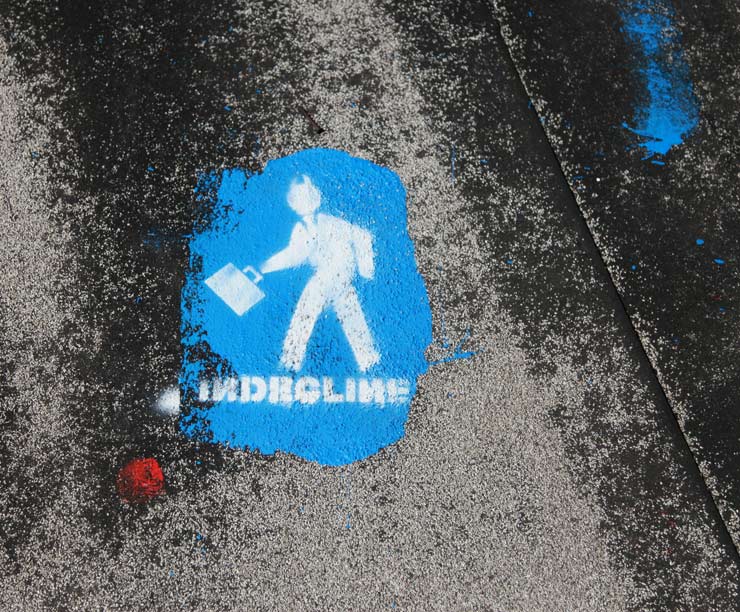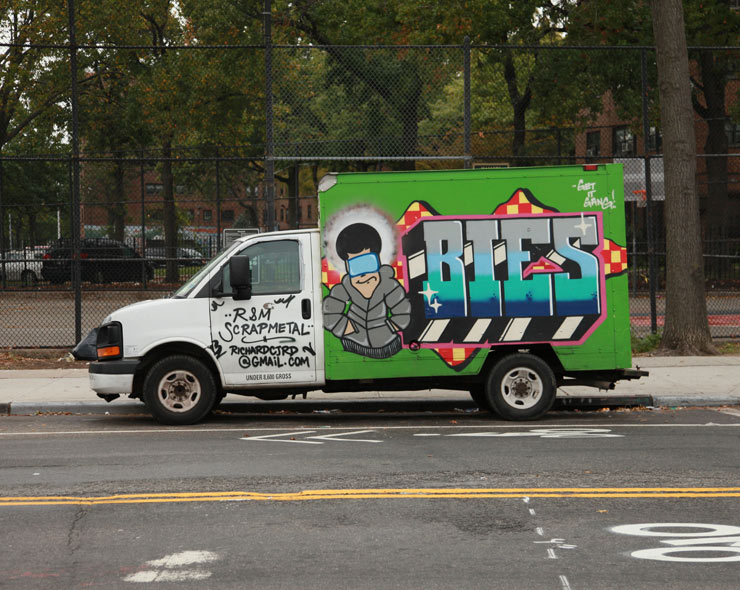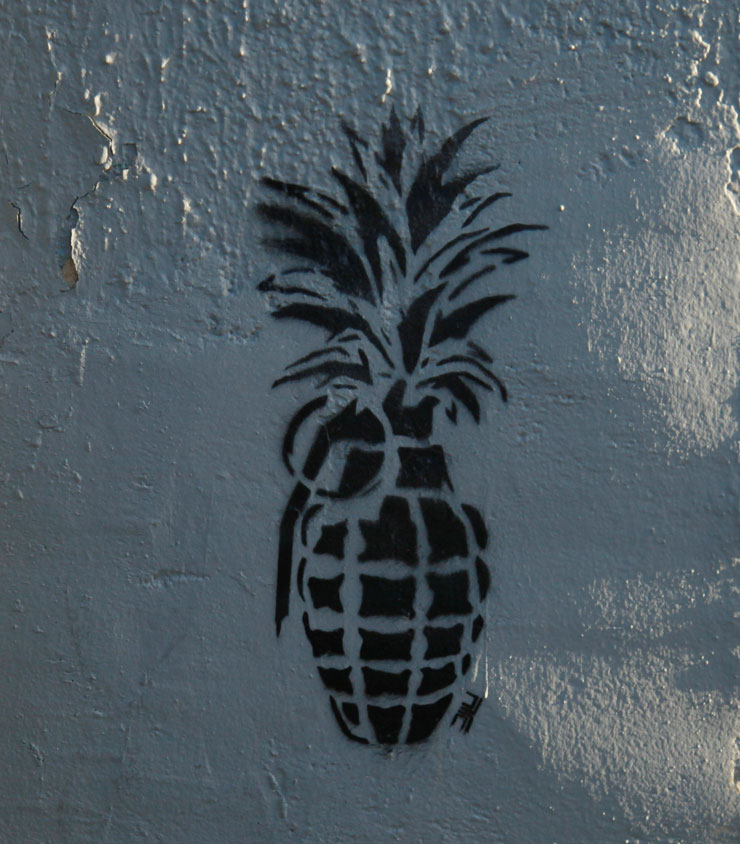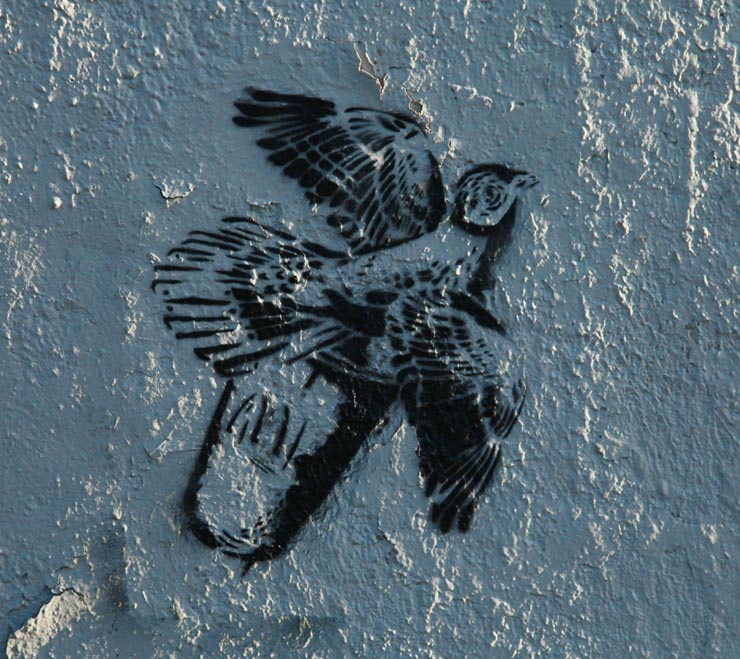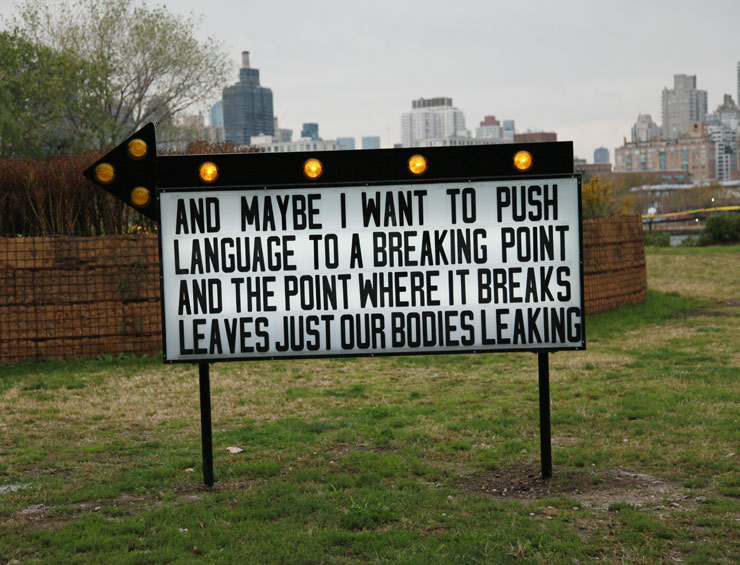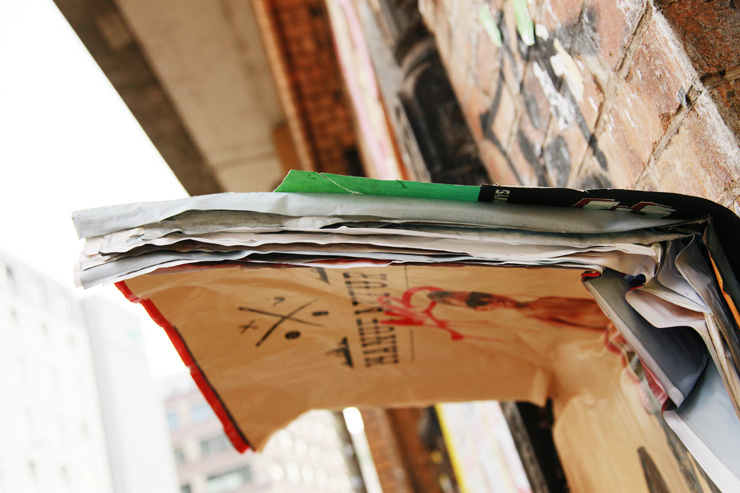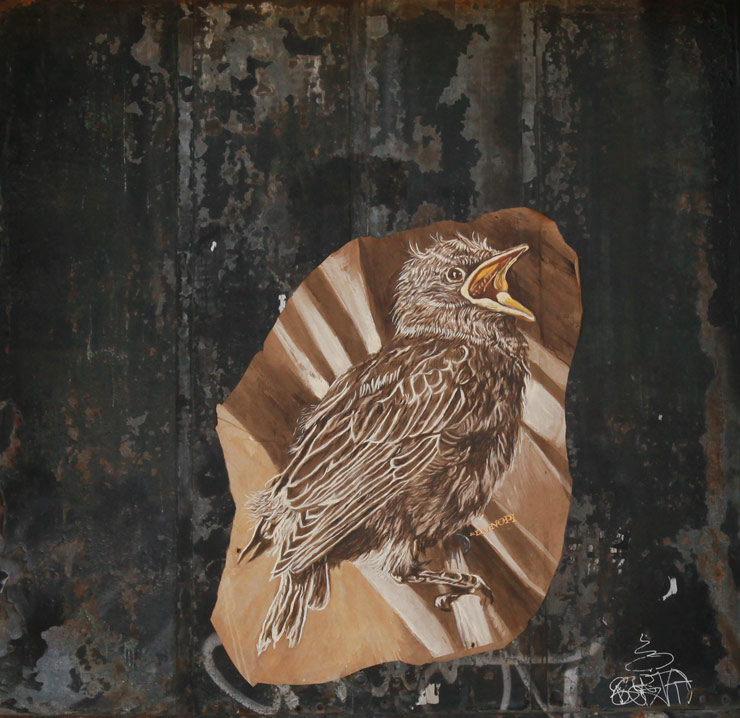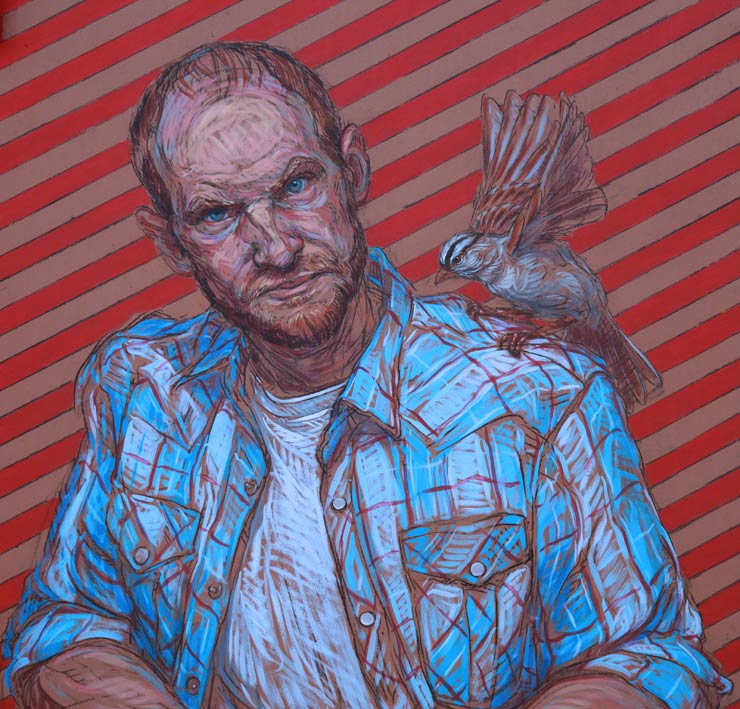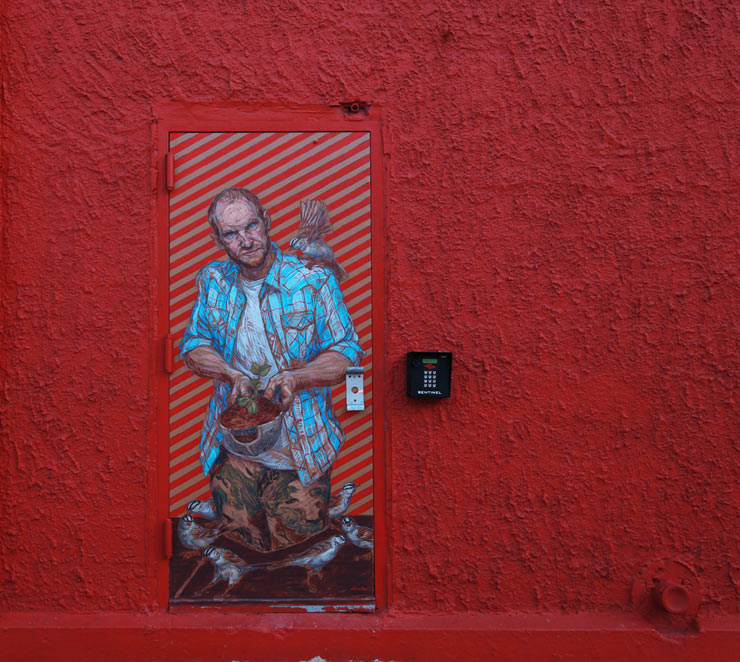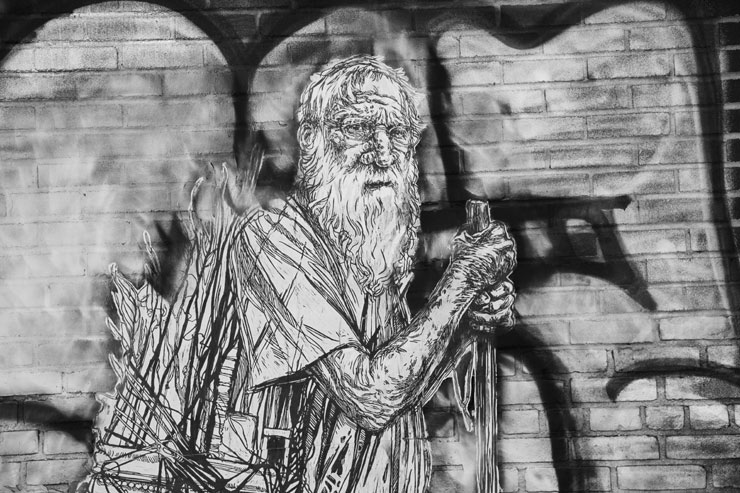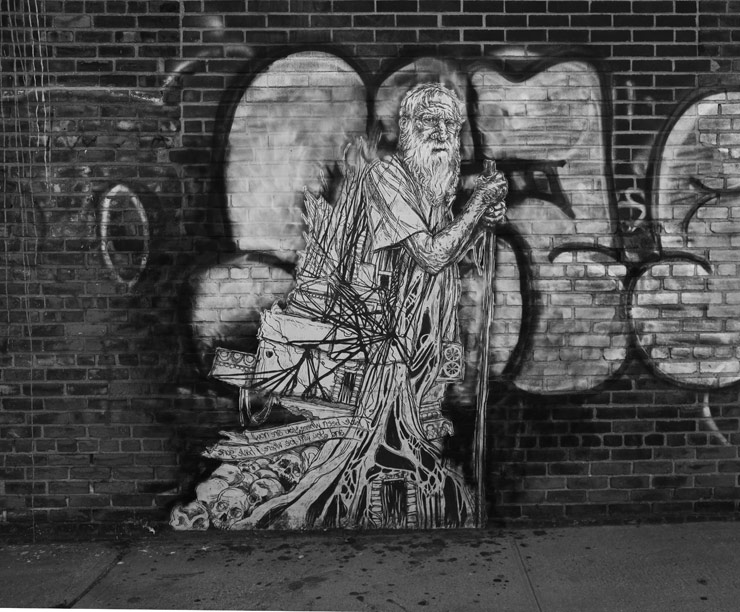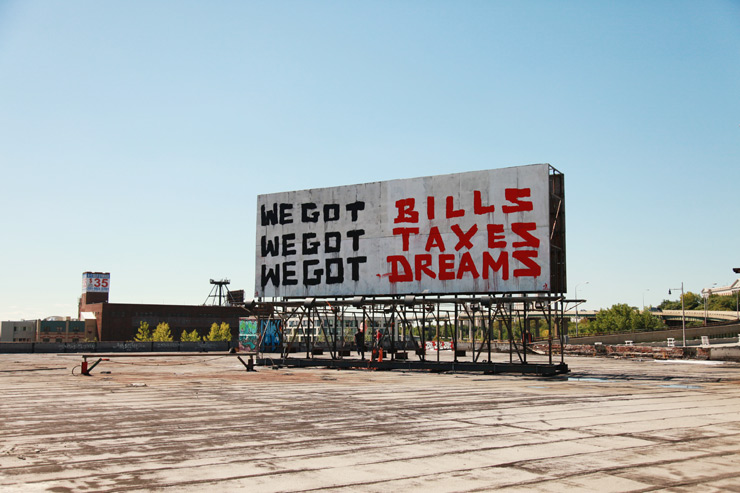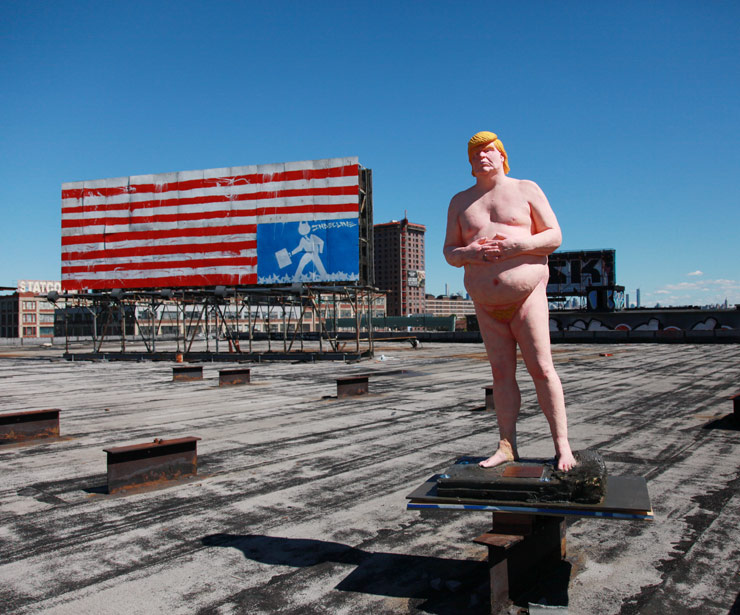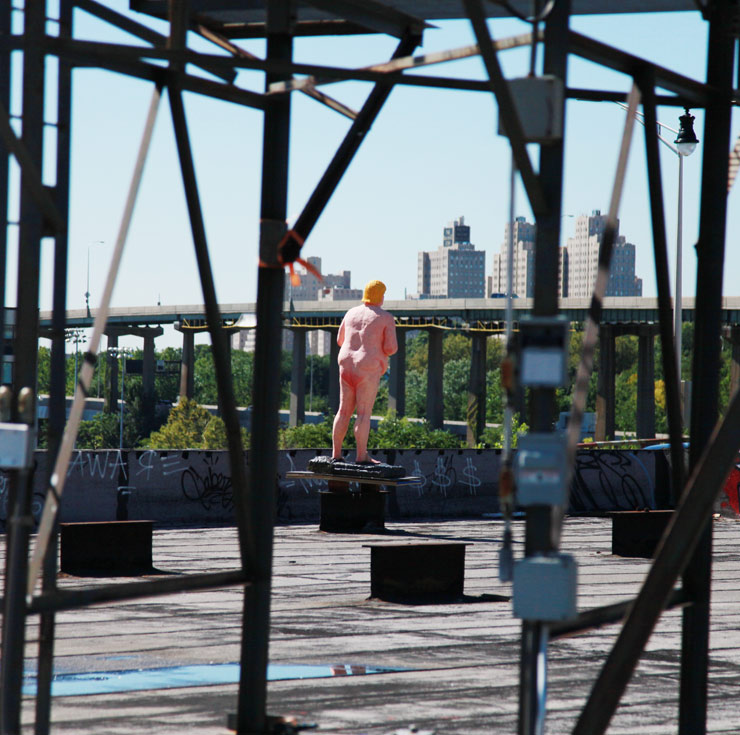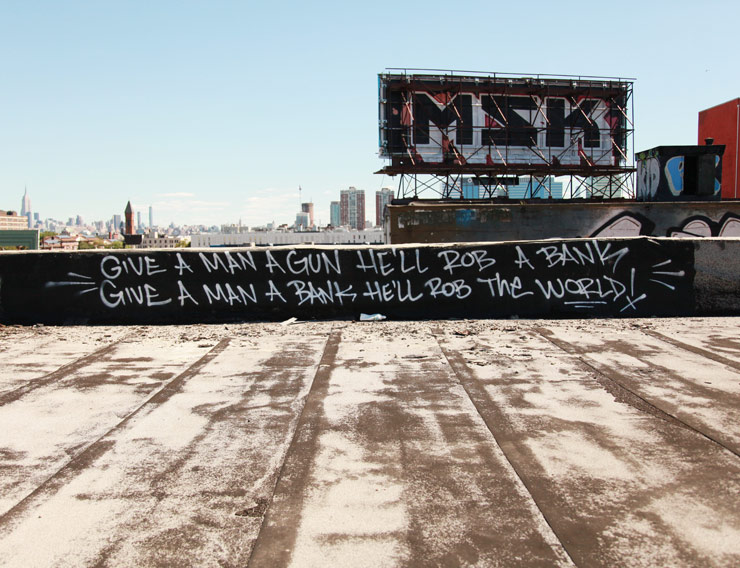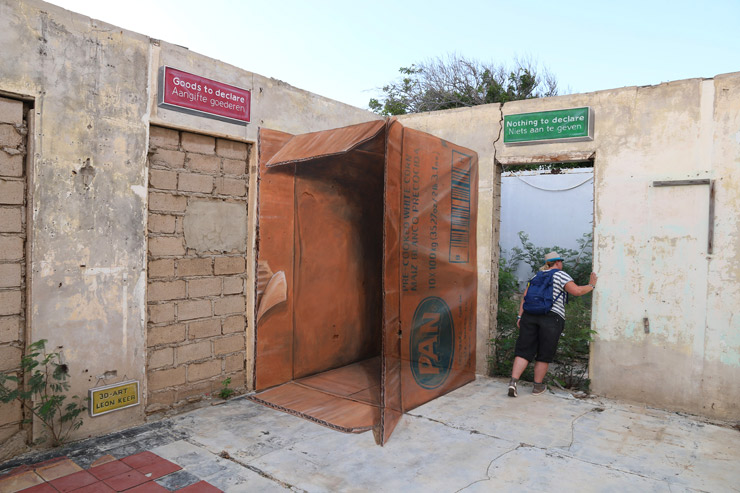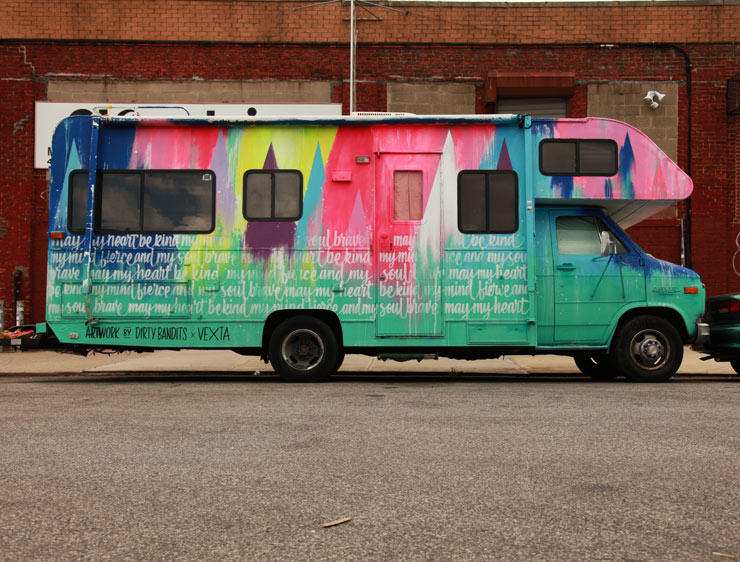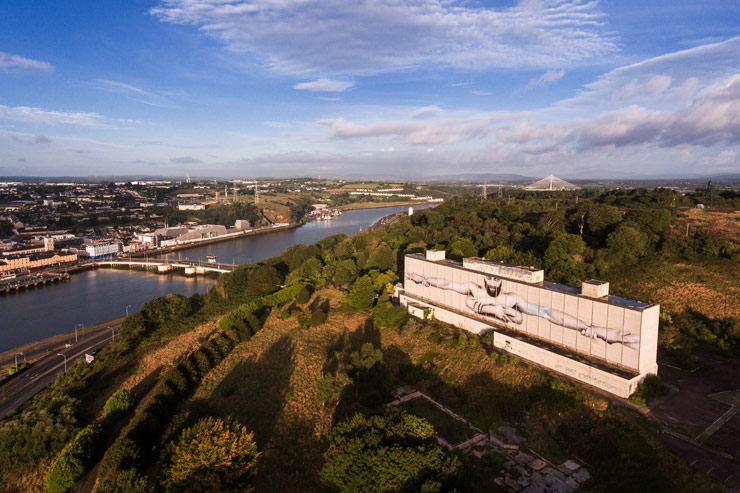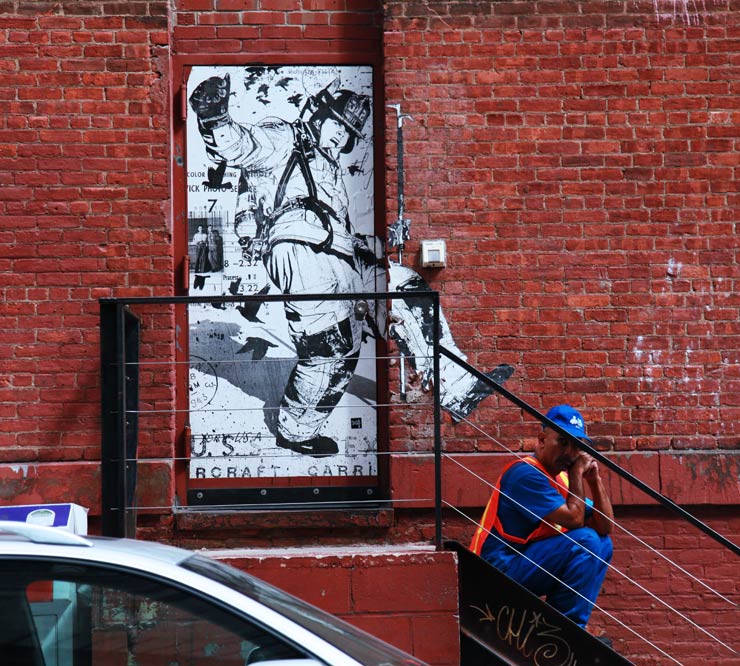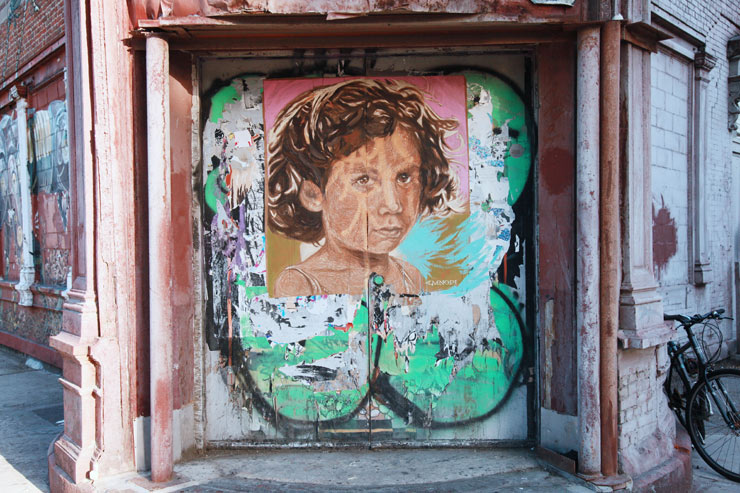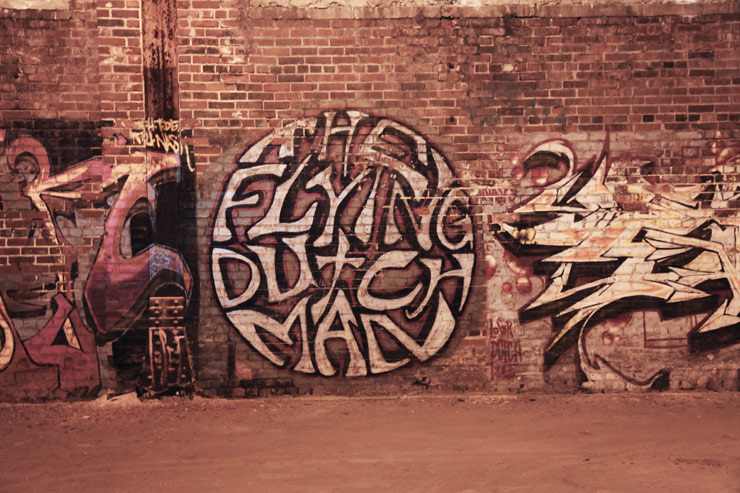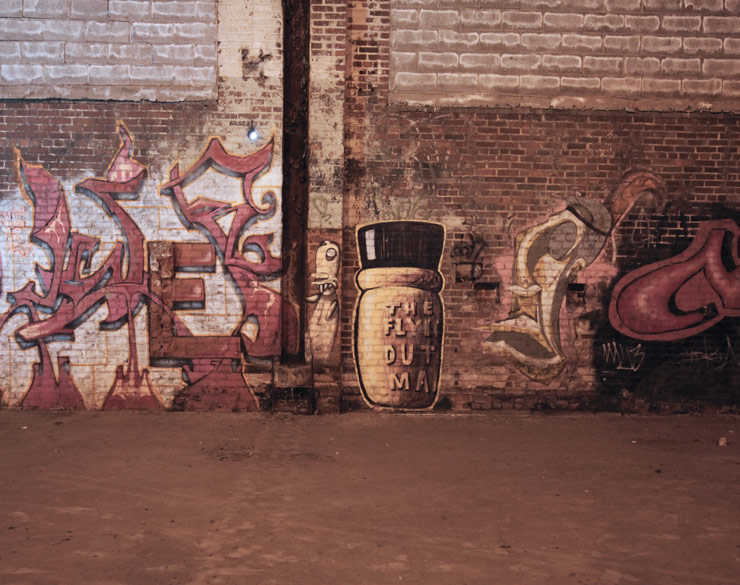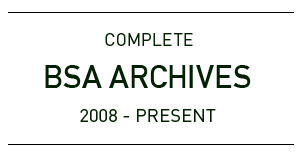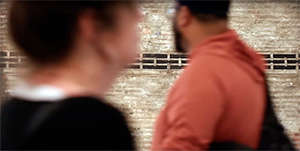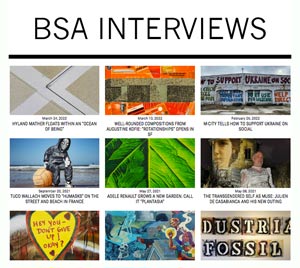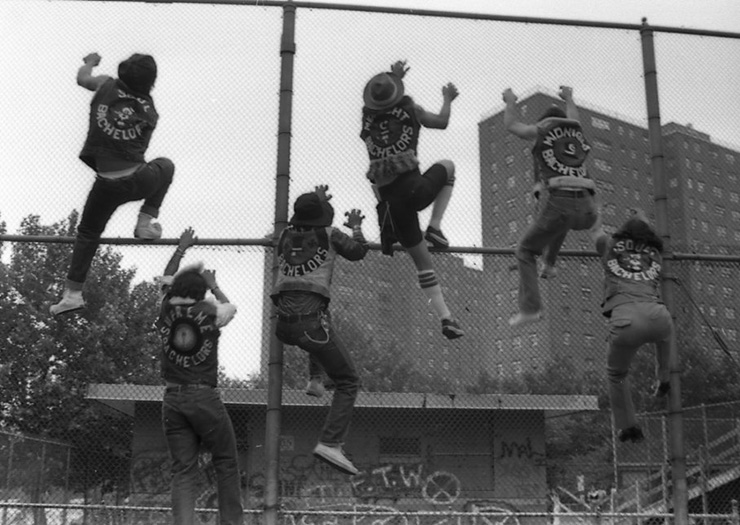
Rubble Kings. © Perry Kretz
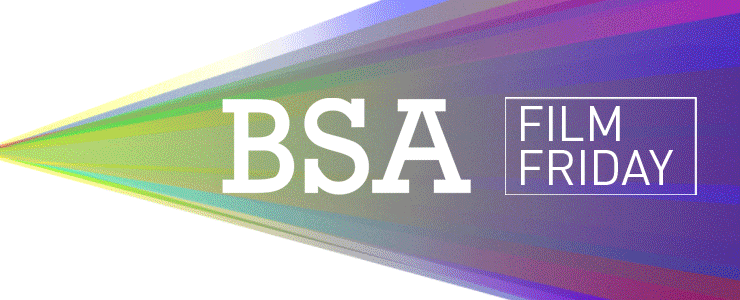
Our weekly focus on the moving image and art in the streets. And other oddities.
Now screening :
1. “Rubble Kings” : Gangs, Graffiti, Hip-Hop in 1970s NYC
2. INDECLINE: “This Land Was Our Land” (Largest Illegal Graffiti Piece In The World)
3. Al Karama: Boa Mistura Reverse Paints the Message in Casbah
4. Mutiny Of Colours: (Trailer) “Peace A Message From Iran”

BSA Special Feature: Rubble Kings
“Rubble Kings” Opens Today: Gangs, Graffiti, Hip-Hop in 1970s NYC
An outstanding recounting of the fierce gang culture born of despair and “white flight” that blighted New York City, Rubble Kings helps put in perspective the evolution of a people being pushed out of the American Dream grabbing it by the balls and reclaiming it as their own, remaking it in their image.
That may be the overly romantic view of an unjust and needlessly brutal time full of violence and murder, with innocent everyday people caught in the middle as victims. And certainly as oppressed as these former gang members were, the thought may cross your mind that the heroic roles depicted in this story are reserved for one gender almost exclusively. That said, props to the director Shan Nicholson that Rubble Kings presents a meaningful and compelling context for the unwinding of the social, political, institutional constructs that shook folks to the bone; an economic violence that decimated neighborhoods and communities.
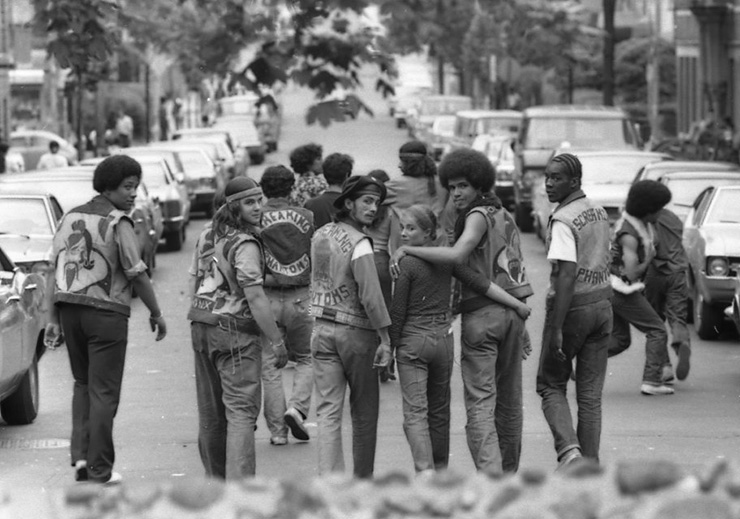
Rubble Kings. © Perry Kretz
Well edited storytelling with actual footage, pertinent interviews, and invented animated scenarios, the story traces the evolution of the Black and Latino experience following the killing of the Kennedy brothers, Dr. King, and Malcolm X, and the death of hope for a people who were just starting to see a chance at sitting at the table of equality, an opportunity at a middle class existence – even as the Vietnam War started claiming many young lives. Defenseless against unresponsive politicians, obtuse bull-headed urban planning, corrupt real estate owners who burned their buildings and contemptible landlords ignoring their responsibilities, high unemployment, a booming drug economy, and a general perception that the police were working against them, these street gangs became a new force of order and disorder; the kings of the rubble.
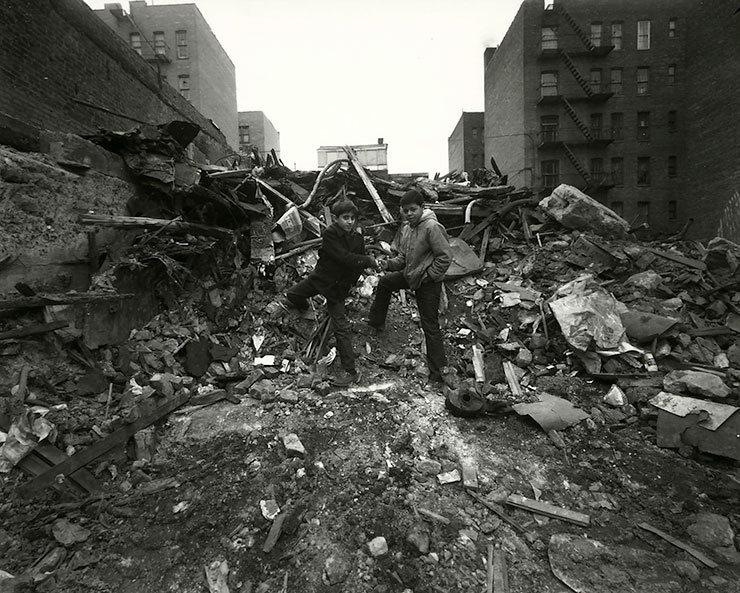
Rubble Kings. © Stephen Salmieri
Aside from the lawlessness in the face of abandonment, the John Leguziamo narrated documentary features a well arched story that presents some crucial insight into origins of the birth of the Hip Hop movement: a grassroots-based all-city community reconciliation that enabled new coalitions and drew directly upon what became Hip Hop’s central tenets including Emceeing (MCing), DJing, Breaking, and Graffiti. With emotional and riveting accounts from gang members like leaders of the 2,500-strong Bronx based gang Ghetto Brothers, Benjamin Melendez and Carlos Suarez, you are able to see the dynamic tension between neighborhoods and philosophies, the depth of turmoil on the streets, and the weight of responsibility leaders assumed.
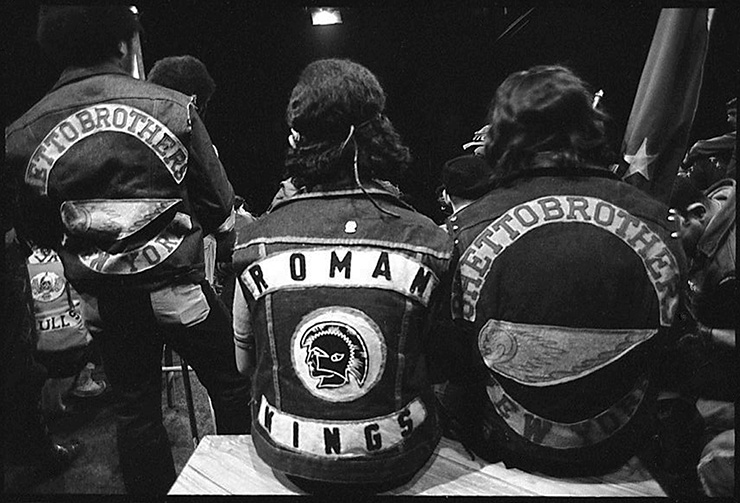
Rubble Kings. © Alejandro Olivera
Musically a direct connection is drawn to the Afro-Cuban and Latin funk of the late 60s/early 70s blending with rock, eventually incorporating disco and electronic influences; a true melting pot worthy of a New York cultural movement. Also interviewed are musical pioneers like DJ Kool Herc, credited with originating hip hop music in the early 1970s in The Bronx, and Afrika Bambaataa, whose ZULU Nation is credited for integrating the needs of the community with inspiration and positive aspirations, weaving it with the creative spirit and a desire for an inclusive common culture celebrating style, strength, and power.
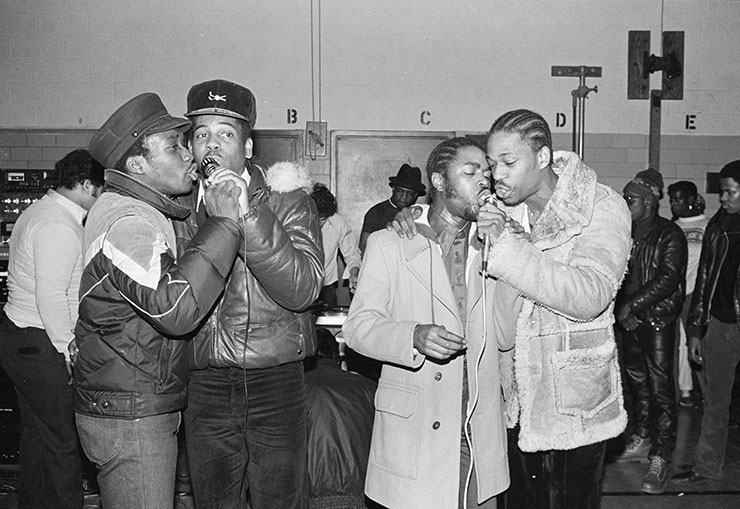
Rubble Kings. © Joe Conzo
Rubble Kings opens today in New York at AMC Empire 25, in Los Angeles at AMC Burbank 8, and Chicago at AMC Country Club Hills 16. A wider national release will follow. It is also available on iTunes, Amazon, Vudu, GooglePlay, Sony Entertainment Network and VHX.
INDECLINE: “This Land Was Our Land” (Largest Illegal Graffiti Piece In The World)
Saying they have just completed the largest illegal graffiti in the world, the anonymous INDECLINE took six days in April to complete this half mile wide statement on a disused military site in the California’s Mojave Desert.
Impressive as hell of course, and Woody Guthrie is an American hero and yes this land belonged to other people before it was claimed by the US and it has been severely damaged by the war machine. But outstanding questions here are: which eight graffiti heads can afford 6 days, 250 gallons of paint, sprayers, power leaf blowers, range rovers, and a $20K budget to pull this off? Also is the name related to the Adobe Creative Suite at all?
Read a good interview with them on VICE.
Al Karama: Boa Mistura Reverse Paints the Message in Casbah
This old town in Algiers called Casbah has been a World Heritage Site, as declared by UNESCO in 1992 but it has fallen into disrepair. The Mediterranean port is known for its white painted facades and features, something Boa Mistura says they found quite poetic. In their customary fashion the collective finds a way to write inspiring messages while preserving the history and character of the town.
Mutiny Of Colours: (Trailer) “Peace A Message From Iran”
Coming next week the Kickstarter for the filmmakers who are creating Mutiny of Colours. They have run out of money to finish their documentary and are reaching out to ask for support. The film follows Iranian street artists who are targeted for attention by the authorities for “promoting Satanism” among other accusations. Their fundraising starts June 28th, and we’ll tell you about it again when we get closer. In the mean time here is a teaser for the unfinished project from the directors, Zeinab & Paliz.
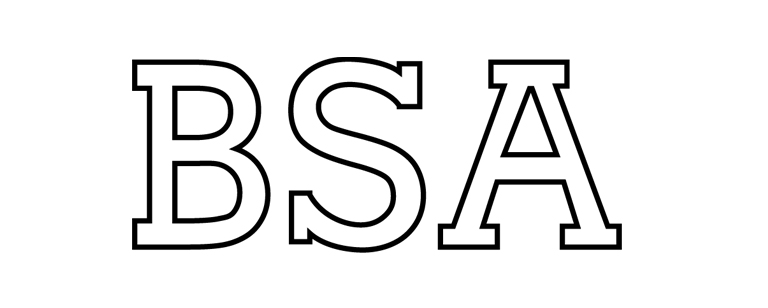 BROOKLYN STREET ART LOVES YOU MORE EVERY DAY
BROOKLYN STREET ART LOVES YOU MORE EVERY DAY